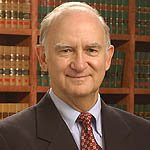This week some of the movie theaters give us a second shot at
movies we have already seen. Chief among these is Schindler’s List Remastered (Dec. 7), a new
print of Steven Spielberg’s harrowing 1993 drama about how one German
industrialist (Liam Neeson) attempted to save Jews from the Holocaust. The
multiple Oscar winner (7 including Best Picture and Best Director) is a
great film but a tough watch but well worth it as it is in the top 10 for best
movies of all time. It is long .. 3 hr 15 min.
Sara and I re-watched it on the big screen with the super
Dolby sound on Thursday night, and were awe struck all over again.
Below is parts of a review from the Chicago Tribune done in
1993 when it came out.
4.0****
Michael Wilmington, Tribune Movie Critic CHICAGO TRIBUNE
“The movie is a triumph on almost every
level-of artistry, technique, humanity, entertainment and spirit. Anyone
worried that Spielberg has bitten off more art and history than he or we can
swallow should bury their qualms. Defying all our cynicism about big-time
Hollywood (is he intent on capturing Oskar or winning Oscars?), this is a great
movie, one of the most powerful portraits of World War II or the Holocaust on
film.
At the center is Liam Neeson as
Schindler, the suave, arrogantly handsome double agent in a world of
institutionalized treachery and murder. Around him is a beautifully acted
gallery: the victims (Ben Kingsley as
the ghetto/factory financial genius Itzhak Stern; Embeth Davidtz as victimized
maid Helen Hirsch; Jonathan Sagalle as Poldek Pfefferberg, who first told
writer Thomas Keneally the Schindler stories), persecutors (Ralph Fiennes,
memorably loathsome as Commandant Amon Goeth) and protectors (Caroline Goodall
as Schindler's long-suffering wife, Emilie).
The picture doesn't cheapen its subject.
It gives us the stark, horrific atmosphere of Krakow, Poland, and Brinnlitz,
near Czechoslovakia, even of Auschwitz-Birkenau itself. It gives the
nerve-shattering chaos in the ghettos and camps and also provides a nightmarish
portrait of Nazi evil: Fiennes' brutish, smug, weirdly comic Goeth, a sadist
and voluptuary who kills prisoners as King Lear's wanton boys kill flies, for
sport.
Neither does the movie slight Schindler.
"Schindler's List" is based on Keneally's 1982 book and on the
memories of the Schindlerjuden, Jews saved by Schindler during the war years.
And the story's prime fascination lies in its paradoxical take on his nature:
opportunist and benefactor, philanderer and crusader, sinner and savior.
With seemingly effortless grace and
skill, "Schindler's List" balances fear and exaltation, humor and
horror, love and death. It evokes, superbly, a time of savagery and grief, and
the inexplicable, stunning compassion that rises within and against it.
Yet the irony is inescapable. The Jews on
the List, after all, the ones Schindler saved, were the exception, the
chosen-the shocked and happy few among millions who died. That's the dirge
keening beneath Spielberg's psalm of unlikely benefactions. For if goodness in
the face of absolute brutality were not so rare, its spectacle couldn't make us
weep.

No comments:
Post a Comment